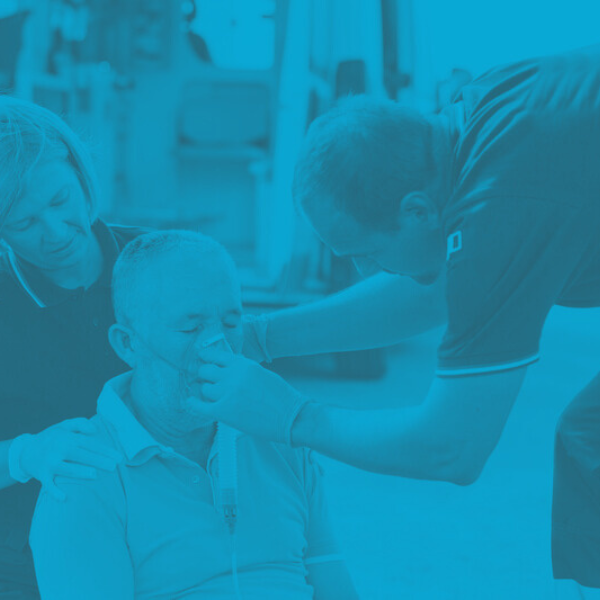Three Problems that Male Nurses Still Face Today
Three Problems that Male Nurses Still Face Today

by Greta Kviklyte
Life Saver, AMC
Co-authored by Kim Murray, RN, M.S.
posted on Nov 9, 2014, at 9:49 pm
MALE NURSE STEREOTYPES have consistently been seen in and outside of the hospital over the years, and male nurses have consistently been minorities within the professions. The gender stereotype was primarily established during World War I and World War II, where nursing became a predominantly female profession due to shortages of money, room and tuition for schooling.
We offer Online ACLS, PALS and BLS Certification and Renewal
Before this time, the world of nursing was quite the opposite as it is today. So, why do male nurses still face much stereotyping and ridicule for their desired profession of helping, while they are often desired as medical doctors? Why are male nurses exposed to a gender gap while male physicians are not? Here are some problems male nurses unfortunately face today.

#1: Prejudice in the workplace.
Obviously, male nurses face some intolerance and discrimination. Despite their level of education or experience, male nurses continue to face this bias. This is generally an issue simply because male nurses see an uneven ratio of female to male nurses, meaning they see less nurses similar to them. This creates a stressful environment for males, often creating pressure and role strain. This role-strain is due to a lack of a “role model” in the nursing world. More often than not, male nurses have to be their own role model from the start. Having a diverse set of genders, minds and body types in any medical practice is imperative to wholesome and comprehensive care in the hospital. There are countless diseases and injuries seen within the hospital, and the need for a diverse set of nurses just makes sense. Thus, male nurses should not have to experience the unfair prejudice.
#2: Male nurses occasionally unwelcome in labor and delivery.
While this isn’t always true, men are sometimes unasked-for in the birthing department of hospitals. Sometimes, patients simply prefer a female or male doctor because of religious, privacy or cultural issues. The stereotype, however, is still there. Often people assume male nurses cannot provide intimate care to a woman without it becoming unwelcomingly sexual, whereas this is not the case with female nurses caring intimately for a man.
#3: Male nurses are perceived as less compassionate than female nurses.
What one man can or cannot do should not reflect what all men can do and likewise to women. All nurses choose his or her profession as a nurse out of care. Male nurses should not be considered narrow-minded, rough and irritated, but instead should be viewed as calm and accepting.
Male nurses can add much more to the hospital than they are given credit. Because of this, let’s ban the stereotype and accept a man’s place as a caring and skilled nurse.




Motivation is the internal and external drives that influence men’s decision to enter nursing. Some quantitative researches exist regarding the reasons why men enter nursing ( 10, 25, 28 ). Most of our knowledge about motivation resides in qualitative studies ( 23, 24, 26, 27 ). Influencing factors on men s contribution in nursing can be practical, as well as personal. Practical factors are associated with a decision which most likely has a favorable outcome for the person, such as salary, working conditions and job security ( 23 ). Personal factors can be considered as those reasons which fulfill some internal drives or needs such as, altruistic desires ( 24 ). The three main reasons discovered throughout the literature on men entering nursing are: significant others, personal, and practical motivations. Parents, families and friends play a significant role in the occupational aspirations and career choices of their children ( 26 ). Chou and Lee found that approval of family and friends had a generally positive influence on men s decision to enter nursing ( 29 ). However, most of the participants in Zamanzadeh et al. study stated that they had not thought of being a nurse before entering university, some of them told stories about high school counselors and others such as their friends who were nurses, and parents, playing a crucial role in their career decisions ( 27 ). Men were also faced with a negative feedback from other males, including fathers and male friends, when sharing their decision to enter nursing ( 14 ). Most male nurses in O Lynn study, knew a male nurse prior to enrolling, and acknowledged that peer support from other male nurses were important in their educational experience ( 11 ). What can be inferred from the literature is that support from significant others close to the male nurse is an influential factor when choosing nursing as a profession. Nevertheless, most of this support comes from females who are close to men that are interested in pursuing a nursing profession ( 11, 13, 14 ). In general, females tend to accept working in non-traditional occupations more than men ( 32 ).